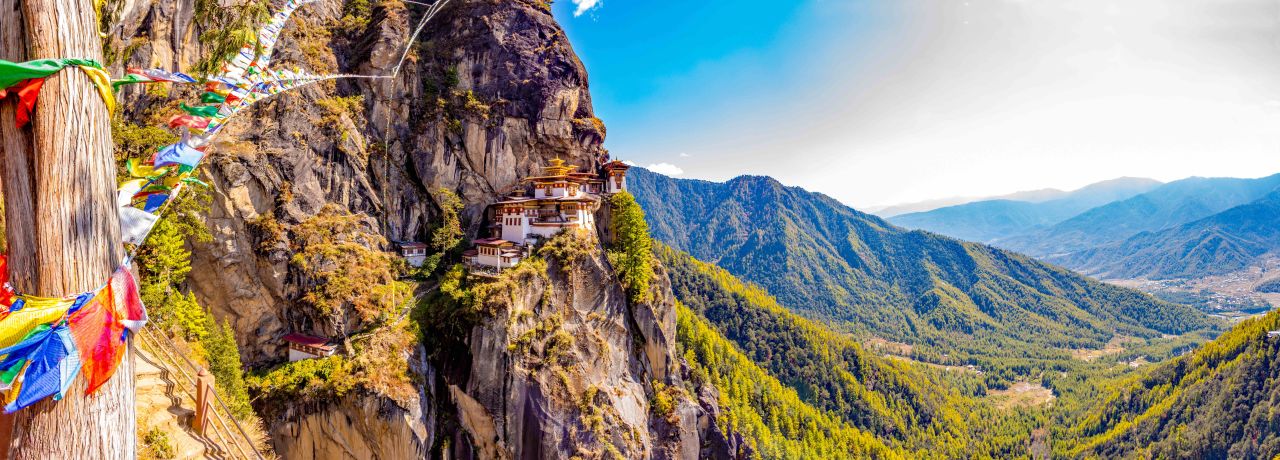

This Country Will Start Charging a $200 Nightly Tax!
There is a country perched in the Himalayan mountains, sandwiched between Tibet and India, that only opened to tourism in 1974. Despite costs and difficulties, it has seen the number of annual tourists rise from 300 in the first year of opening to over 315,000 in 2019. Although tourism has become a very important source of income, the pandemic closure granted a rare opportunity to rethink what model of tourism is to be encouraged. Bhutan settled on one with greater attention to the ecological footprint of travelers.
So one of the longest pandemic closures to tourism is coming to an end, and the opening date has already been set for September 23, 2022. But tourists who will finally be able to return that day will face what is probably the highest tourist tax in the world: $200 a night!
Bhutan Reopens to Tourism with a Huge Tourist Tax
Bhutan took its own approach to development, which led King Jigme Singye Wangchuck to consider Gross National Happiness to be a broader guiding principle than GDP in the 1970s — so as to prioritize happiness over economic growth.
Today there is the fully operational Center for Bhutan and GNH Studies which is responsible for studying and monitoring citizens' happiness and proposing solutions to increase it. Yet the kingdom is turning to what is now its main source of income, tourism.
After opening its doors in the mid-1970s, the importance of tourism became increasingly central, especially since the 2000s. Yet after nearly 50 years of uninterrupted growth, the pandemic closure brought about a rethinking of the role of tourism and tourists in the country.
In the Official statement announcing the reopening of the borders for September 23, 2022, the government also announced that the new guiding principle would be sustainability: "Our strategy for revamping the tourism sector takes us back to our roots of 'High Value, Low Volume,' where we meet the needs of tourists while protecting our people, culture, values, and environment. Tourism is a strategic and valuable national asset that impacts not only those who work in the industry, but all Bhutanese. Ensuring its sustainability is critical to safeguarding future generations."
How the New Tourist Tax Will Work
Even before the pandemic, visiting Bhutan was very expensive: in addition to the compulsory visa (costing $20), tourists had to apply to accredited tour operators, with no option to change their itinerary. And most importantly, they had to pay the minimum daily rate, which varied depending on the period and was $200 or $250.
The minimum daily rate (calibrated to 3 people, higher for those traveling as a couple or alone), however, included virtually all costs: 3-star accommodation, the 3 main meals, a licensed Bhutanese tour guide for the entire duration of the stay, all internal transportation (excluding any flights), camping equipment and transportation for treks (where applicable), all taxes and internal expenses, and the $65 tourist tax.
Now the government has decided to triple the tourist tax, raising it from $65 to $200, and at the same time abolishing the minimum daily rate and promising more freedom of choice and flexibility for tourists.
Basically, the amount that tourists have to shell out each day remains virtually unchanged, but whereas before it already included all services, now it refers only to the tourist tax, to which all expenses for lodging, food, transportation, etc. must be paid separately.
For the government, this ensures that the country as a whole continues to be carbon negative, i.e., absorbing more carbon dioxide than it produces, thus actively combating global warming. In addition, tourists will be able to have a more personalized experience that is attentive to their needs, and there will be high-value experiences for visitors while ensuring well-paid professional jobs for Bhutanese citizens.
But of course such a high tourist tax risks making the country accessible only to wealthy tourists who can afford such high daily costs.
What do you think, Pirates?
We value your privacy
We use cookies to enhance your browsing experience, serve personalized content, and analyze our traffic. By clicking "Accept All" you accept this and consent that we share this information with third parties and that your data may be processed in the USA. For more information, please read our .
You can adjust your preferences at any time. If you deny, we will use only the essential cookies and unfortunately, you will not receive any personalized content.